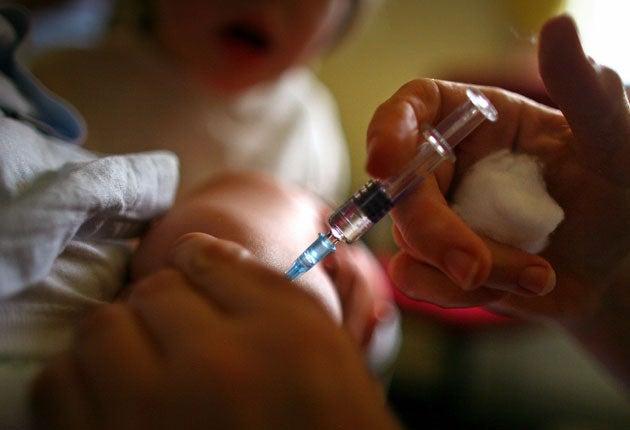High Court rules sisters must have MMR jab against their and their mother's wishes
The decision came after the father of the girls brought the case to the High Court in September

A high court has ruled that two sisters must have the MMR jab against their wishes and the wishes of their mother.
The decision was made after the father of the girls, aged 15 and 11, brought the case to the High Court in September.
Both parents had agreed not to vaccinate their children when they first married. The elder daughter received the MMR jab but not a second dose, and the younger daughter did not receive either.
However, the father said that after reading research that discredited fears over a link between MMR and autism, he wanted both girls to be vaccinated.
The couple are now divorced.
The MMR jab is a combined vaccine that works to protect against measles, mumps and rubella and is administered to babies, usually within a month of their first birthday. A MMR ‘booster’ is then given before children begin primary school. Both doses of the vaccine ensure between 99 and 100 per cent immunity from all three diseases.
The vaccine came under a storm of controversy when Dr Andrew Wakefield produced now discredited research linking the jab to autism in 1998.
In November 2012, Swansea was affected by an outbreak of measles, and by April 2013 there had been a rapid increase in diagnosed cases, with up to 20 suspected cases reported each week.
The father said the outbreak at Swansea also contributed to his change of mind as he feared for the health of his daughters.
A text of the court decision seen by BBC Newsnight showed his solicitor had contacted the girl’s mother asking her to agree to vaccinate the children, or the father would take the issue to court. She did not comply and the case was brought before the Family Division of the High Court.
Mrs Justice Theis emphasised it was a specific case “only concerned with the welfare needs of these children” when outlining her decision. However, lawyers say it follows a series of similar rulings made in 2011, confirming there is no longer any debate about the benefits of the vaccine, according to the BBC.
In her ruling, Judge Theis wrote: “I am aware that this is against the girls' wishes but that that it is not the only factor. The court also has to consider their level of understanding of the issues involved and what factors have influenced their views. I do not consider there is a balanced level of understanding by them of the issues involved.”
Join our commenting forum
Join thought-provoking conversations, follow other Independent readers and see their replies
Comments